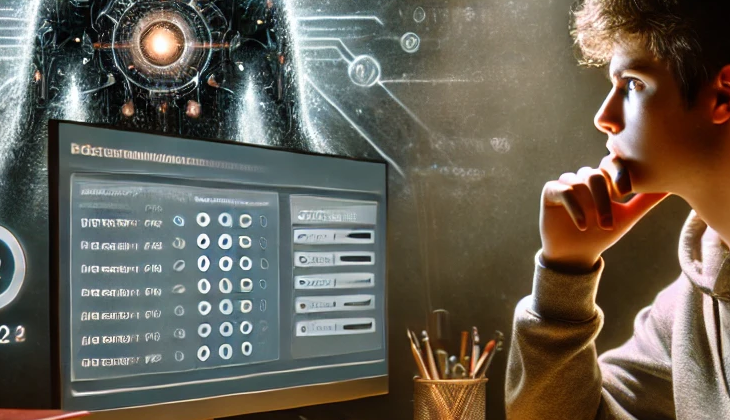Ah, the great paradox of online exams: if no one's watching, someone (or something) definitely is.
With the explosion of remote assessments, institutions and companies have faced a fundamental dilemma: how do you prevent cheating when test-takers are hidden behind their screens? The solution? AI-powered proctoring—or, in many cases, AI-driven assessment automation that skips human oversight altogether.
The Rise of AI-Only Exam Monitoring
Instead of human proctors monitoring live test-takers, many online exams today rely on AI-driven algorithms to detect anomalies. These systems analyze keystrokes, eye movements, and background noise, flagging anything that seems suspicious. Some platforms even autograde responses using machine learning, deciding in mere seconds whether an answer is worthy—or worthy of scrutiny.
And in cases where there’s no active proctoring? Well, then it’s likely that the questions themselves have been algorithmically engineered to prevent mass cheating. That means randomized question pools, adaptive difficulty, and AI-generated variations of the same prompt, making it nearly impossible for students or candidates to compare answers.
No Proctor? No Problem... or Is It?
For those celebrating the absence of a human proctor, don’t pop the champagne just yet. AI isn’t just watching—it’s judging. Automated proctoring tools can misinterpret normal behavior (like a nervous glance away from the screen) as “suspicious activity.” Worse, biased AI models have been known to disproportionately flag certain demographics, adding a whole new layer of controversy.
On the flip side, AI-only monitoring has weaknesses. While it can detect browser activity or even second screens, it’s far from foolproof against old-school tactics like discreet note-passing or well-placed Post-it notes. And let's not even get started on the underground industry of hired test-takers who have mastered bypassing AI scrutiny.
The Future: AI + Human Oversight?
The ideal solution might be a mix of AI efficiency and human judgment. Many organizations now employ “human-in-the-loop” models, where AI flags potential cheating and human reviewers step in for final judgment. This hybrid approach ensures fairness while keeping the process scalable.
Beyond fairness, there's also the question of effectiveness. While AI proctoring creates the illusion of a tightly controlled exam environment, determined cheaters are always a step ahead, using tactics that AI struggles to detect—like remote-access software, silent Bluetooth earpieces, or even deepfake voice tools to trick biometric verification. Meanwhile, honest test-takers risk false flags that could jeopardize their results, leading to appeals, delays, and unnecessary stress. The real challenge isn't just catching cheaters—it’s designing assessment systems that are both secure and equitable, ensuring that automation enhances integrity rather than undermining it.
At the end of the day, if your online exam isn’t proctored, you’re still being watched—just by an algorithm rather than a person. The real question is: would you rather have a human proctor side-eyeing you in real time, or an AI silently deciding your fate based on pixels and keystrokes?
What do you think? Does AI proctoring make exams fairer, or does it open the door for more cheating and bias for non proctored exams.
